Blog
Press Release: May 10, 2024
The Relay: Grossman Prayer Letter
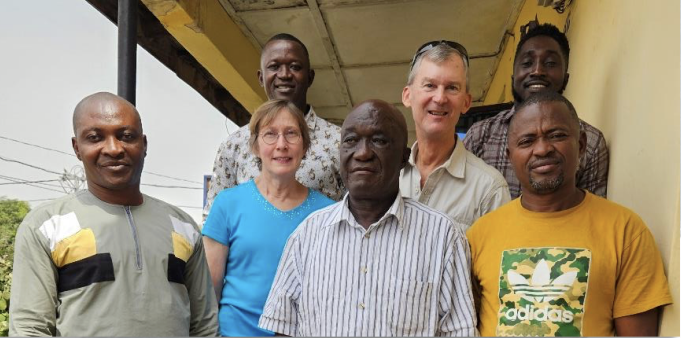
MEET THE THEMNE TEAM
I first met the Themne team in January when we worked on the book of Genesis. Themne is one of the major languages in Sierra Leone. Since then, we completed Genesis during an online session. This team is characterized by the JOY and ENTHUSIASM they express in their work.

Avril (CAP officer for Bible Society), Thomas (in front)
Joseph Kamara is the oldest member of the team but is no less enthusiastic than his younger teammates. He has a Masters in education and administration, and he also lectures at a local university. When asked why this translation is so important, he responded, “I love this job because I want my people to get the Good News. I want people to receive the Word of God. Because from what I’ve understood, I came to know that God himself wants to meet us. He’s always trying to reach us. But how can he reach us when our people are saying it is only through the Arabic language? But God wants to meet us in all the languages. How can we say God speaks only one language? God speaks every language and God wants to meet us. So if I’m given this opportunity to put the Bible in my own language. I am very HAPPY doing it. I do love the job, because I want God to reach my people and I want my people to talk to their God in their own language. That’s why I am very ENTHUSIASTIC to see that this work is finished JOYFULLY and fruitfully.” He also says, “God is really in my life. God is everything for me, He’s my savior, my protector, but I usually say God is my umbrella. He covers me wholly and fully. And I depend on him wholly and fully. And I believe that through Jesus Christ, I am saved.”
Daniel Fullah is the team leader. He is married with four children. He is a professor at a local university having acquired a Masters in descriptive and applied linguistics. He shares that by using the language of your birth, the culture of it does not need to be taught. People understand. When asked the same question, he says, “I am also encouraged when we go out and start testing, you can see JOY in the life of the people. We just tell them the book I’ve got in my hand is the Bible and it is in your language. And then I will ask for consent to read that to somebody. And after reading, you will see the JOY, the facial expressions, the JOY. Having the Bible especially the Old Testament in your language is like God talking to you in your language. So it’s actually a blessing from God to talk to you in your language.”
Kelvin Koroma is a pastor and a lecturer at a seminary in Freetown. He is married with five children. He used to be a Muslim. People even thought he would follow in his grandfather’s footsteps to become an imam or teacher of Islam. He learned about Christ when his cousin invited him to church. He learned about a Jesus that was different from what he learned in the mosque. He said, “It is in the church that I understood how God had mercy and how Jesus Christ had mercy on me. So I accepted Jesus as my Lord and Savior.” He is concerned about the large Muslim population in Sierra Leone. When asked the question above, he said, “So enabling them to read in their mother tongue the message of God in the Bible is really important. Because where they go to pray, it is another language, in their own mother tongue, they will understand without someone interpreting it in a way that is really personal and that will make them be committed to their (new) faith.” Kelvin also says, “When I hear (God’s word in my own language), I know what this means and that is very JOYFUL to me.”

Simon Bangor is the newest member of the team. He is married with four daughters. He has a degree in agriculture. He was born and raised as a Christian. Starting from his great great grandparents on down, all of his family is Christian. His family hosted the first missionaries of the Wesleyan mission. He recalls that sometimes in the church services in his community, people would leave at the sermon because it was in English. He said, “People coan come now a lot into the churches because they can hear in the local languages. But before now because they would not speak the (local) language (in church), only few could come to church. When they decided to write the Bible (in Themne), everybody was HAPPY. That is our wish; we desire for more vitality and understanding of the message, for people to hear the Word. If they hear the Word in their language that will help us in our daily faith to God.”
Thomas Larkoh is a pastor, married, with six children. He told me, “When we were growing up, the most popular saying from the nonbelievers is that Christianity is an English religion. They would like to say this is for white people. White people bring this religion to you because everything about the Bible is in English. But to be a translator or looking at the Word of God in my own language is like saying what the people are saying is not true. This brings God to my own understanding, to my own people, my own language, my own tongue. I can read and sense the Word of God, sense the love of God. I can see God working in all areas of my life, helping me to focus my attention on the salvation he got for us…so that I can see people in all areas of their life and I can still have a way to love them. I will not boast of what I have. I will BOAST in Jesus. I know the translation of the Bible into my own language is very important because it has a great Word to bring so that people continue to believe God.”
Learn more about the Themne team.
Dr. Becky Grossmann began serving with Lutheran Bible Translators in 1985 as an assistant to the language program manager in Liberia, West Africa. She became the manager for a short time before being assigned as translation advisor to the Bandi people of Liberia in 1989 and the New Testament translation was completed in 1996.

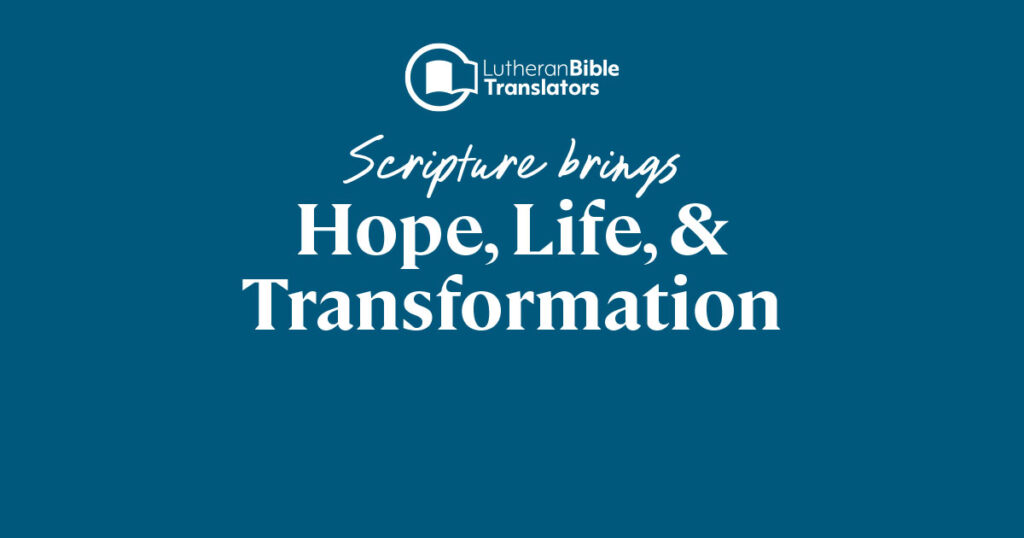

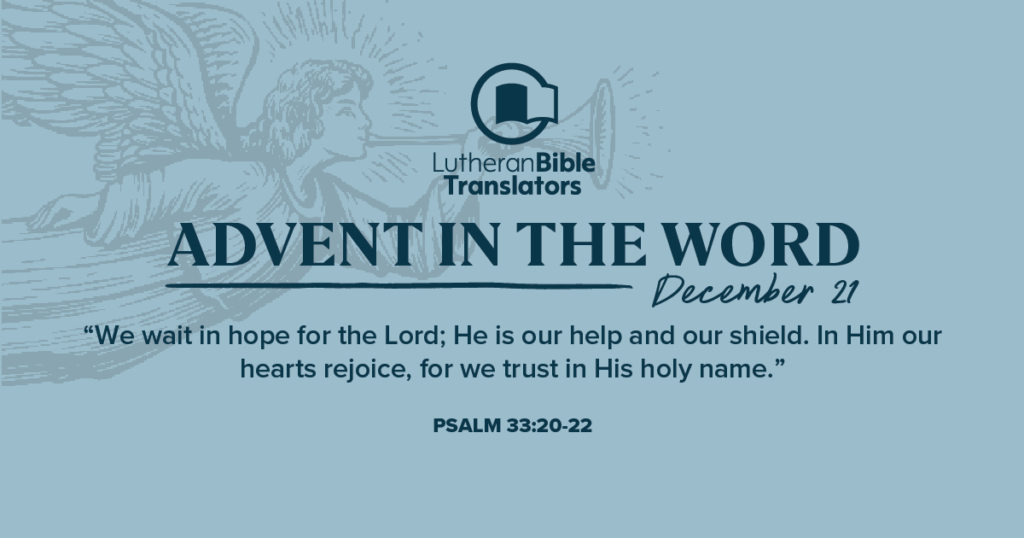
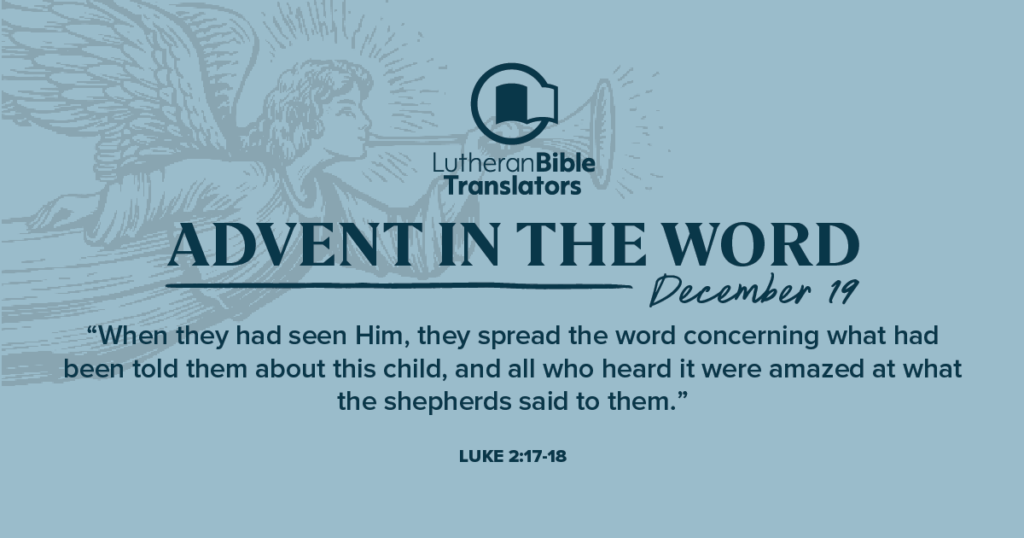
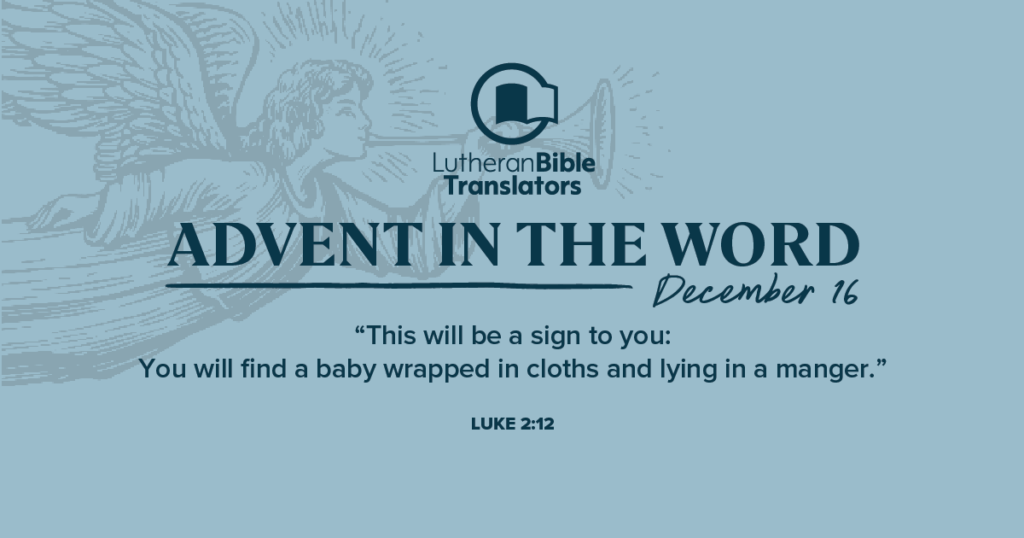
Leave a Reply
You must be logged in to post a comment.